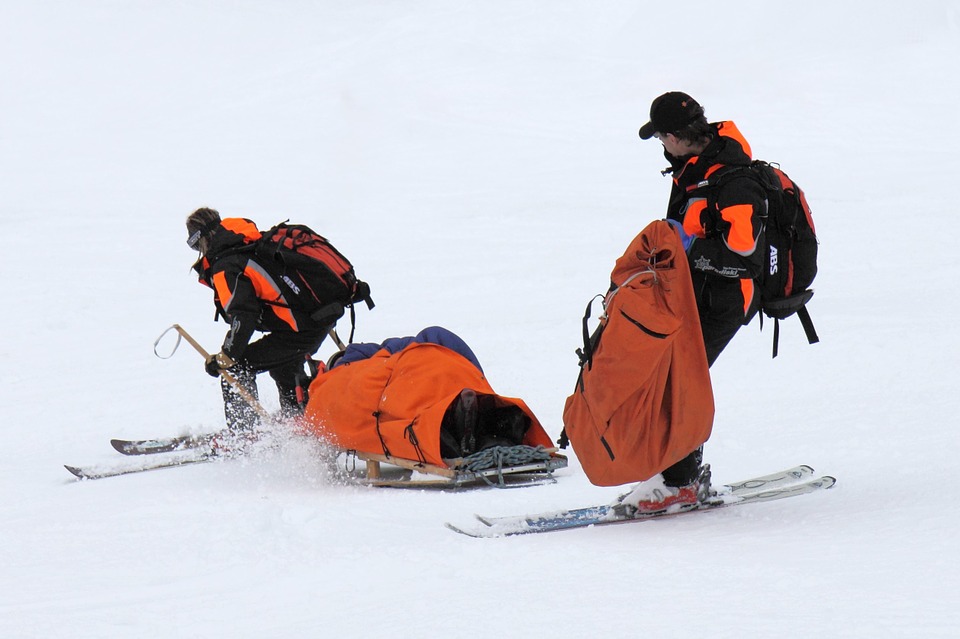7 Ways to Prevent Injuries This Winter
 Personal injuries may occur in winter, especially if you are not prepared. Preventing these injuries is possible, and you can enjoy activities without stiffness and unnecessary pain. This guide will give you crucial ways to avoid injuries this winter.
Personal injuries may occur in winter, especially if you are not prepared. Preventing these injuries is possible, and you can enjoy activities without stiffness and unnecessary pain. This guide will give you crucial ways to avoid injuries this winter.
1- Snow Shoveling
Slipping and falling on ice is a scary experience. During winter, it can be difficult to see in the day and night. There are water pools on the pavement and ice on the yard, which makes everything slippery. Once you step on the slippery patch, you can fall and acquire severe head, hip, wrist, and ankle injuries. Aged people are at a high risk of getting injured because of weak body parts. However, you can prevent this by removing snow from the walkways and spreading sand on icy surfaces.
2- Take Proper Safety Precautions When Driving
Winter comes with potentially dangerous road conditions such as sleet and slush, wave pavement, and coverings of ice and snow. If you are not careful when driving, you can put yourself and other people at risk. Heavy snowfall can block the windscreen of your car and reduce your visibility. Excessive speed can cause the car to lose control during this cold period. Minimize the risk by giving time for the windshield to defrost. Also, ensure that you have a scraper and a de-icer in the car. You can buy tires and wiper blades that are appropriate for winter. Avoid driving during extremely cold and slippery weather conditions.
3- Be Prepared
During the cold period, you should dress warmly to stay healthy. Wearing waterproof clothes and shoes is a must to avoid contracting flu and other illnesses. For those who enjoy running, you can buy a pair of running tights. A hat is essential, especially when it gets to sub-zero temperatures. During winter, it gets dark earlier than usual. Therefore, you should light up all the areas you are bound to pass at night to avoid falling. Even in cold weather conditions, people still sweat. Therefore, it is advisable to drink the right amount of water to keep your body healthy.
4- Wear Safety Gear
Striking your head can cause brain injury. It can happen when playing winter sports, such as skiing, ice skating or hockey. At high speeds, you can hit a pole, tree, concrete, or ice and the impact can be fatal, at times. Avoid these obstacles and more importantly, ensure small children are out of sight when playing these games. Remember to wear a helmet and protective clothing when engaging in winter sports. If you experience dizziness, confusion, loss of coordination or nausea, make sure you see a doctor right away.
5- Do Exercises Regularly
Any activity done during the winter has unexpected consequences because of the icy weather conditions. Shoveling snow should be a day-to-day activity during winter, but it can cause back, shoulder, wrist, neck, and knee pains. You can prevent this by doing stretching exercises every morning. When shoveling, only pick up what you are more comfortable with and protect your body with heavy clothing. In case of a fall, it is normal to use your hands to support the body. Wearing wrist guards will be of great help when playing winter sports.
6- Provide Additional Support for Seniors and Children
Children and seniors may not be aware that they can be at a high risk of sliding when temperatures fall. When walking and performing other activities, they may fall and get injured during winter. To prevent this, you should ensure that they wear slippers and shoes that have a firm grip when in the house or walking on the pavements. Also, creating slip proof paths and clearing snow from walkways and driveways is of great help. It is essential to have an emergency bag with medical care necessities in case of an emergency.
7- Know Your Limits
It is a crucial weather safety tip that everyone should consider during winter. Even after you follow every guide on injury prevention, it is normal to end up feeling exhausted after skating, snowboarding or skiing. In such cases, it is essential to have rest and enough sleep to relax your mind and body. Straining your body can lead to health complications and increase the risk of falling. When you are in an unfamiliar place, such as rocky and hilly areas, you should be cautious to avoid acquiring preventable injuries.
 If you get severe injuries during winter, you should contact the nearest doctor for assistance. Additionally, you can purchase painkillers to stop the pain in muscles.
If you get severe injuries during winter, you should contact the nearest doctor for assistance. Additionally, you can purchase painkillers to stop the pain in muscles.
















